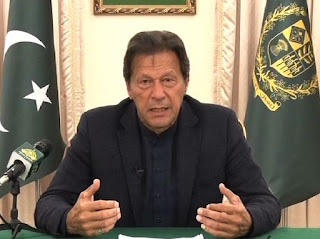No change at the ISI
Editorial -- Express Tribune (coming out soon in the market)
The extension given by the prime minister to the current chief of the ISI, Lt-Gen. Ahmed Shuja Pasha, has been described by large sections of the media as something that was necessary for the continuation of the military’s successful strategy in fighting the militancy inside Pakistan’s borders. On the face of it this may seem to be a sound argument but it does raise the issue that surely there would be another candidate to step into his shoes. Also, that military doctrine, strategy and tactics should not rest on a single individual and given the way that the Pakistan Army works, it would indeed be fair to say that that is not the case. This means that while the military’s recent determination to go after terrorists and militants in various parts of Fata as well as in Swat is a welcome change – and perhaps added to this could be a change of heart, so to speak, vis-à-vis the Afghan Taliban – such a shift should not be linked with the continuation in service of certain individuals. In other words, the shift needs to be institutional and founded in the institution’s philosophy and approach and this is perhaps where the problem – and not just with military extensions – lies.
Giving extensions in any government organization – civil or military – is not a good idea and should be done only in the most extenuating circumstances, it at all. The reason is straightforward: extensions deny otherwise deserving individuals, who have been rising through the ranks, gaining valuable experience and forming the (reasonable) expectation that one day they too will have a chance to do what the incumbent is doing. As such extensions can be bad for morale and send a signal to waiting officers that service rules and regulations can be set aside for other considerations
The extension given by the prime minister to the current chief of the ISI, Lt-Gen. Ahmed Shuja Pasha, has been described by large sections of the media as something that was necessary for the continuation of the military’s successful strategy in fighting the militancy inside Pakistan’s borders. On the face of it this may seem to be a sound argument but it does raise the issue that surely there would be another candidate to step into his shoes. Also, that military doctrine, strategy and tactics should not rest on a single individual and given the way that the Pakistan Army works, it would indeed be fair to say that that is not the case. This means that while the military’s recent determination to go after terrorists and militants in various parts of Fata as well as in Swat is a welcome change – and perhaps added to this could be a change of heart, so to speak, vis-à-vis the Afghan Taliban – such a shift should not be linked with the continuation in service of certain individuals. In other words, the shift needs to be institutional and founded in the institution’s philosophy and approach and this is perhaps where the problem – and not just with military extensions – lies.
Giving extensions in any government organization – civil or military – is not a good idea and should be done only in the most extenuating circumstances, it at all. The reason is straightforward: extensions deny otherwise deserving individuals, who have been rising through the ranks, gaining valuable experience and forming the (reasonable) expectation that one day they too will have a chance to do what the incumbent is doing. As such extensions can be bad for morale and send a signal to waiting officers that service rules and regulations can be set aside for other considerations



Comments
Post a Comment